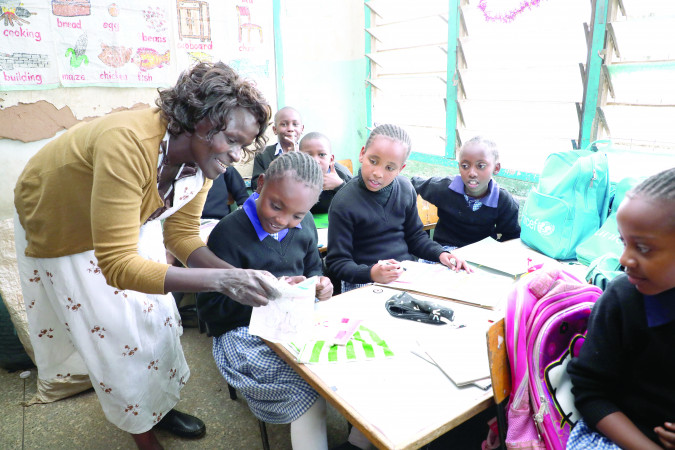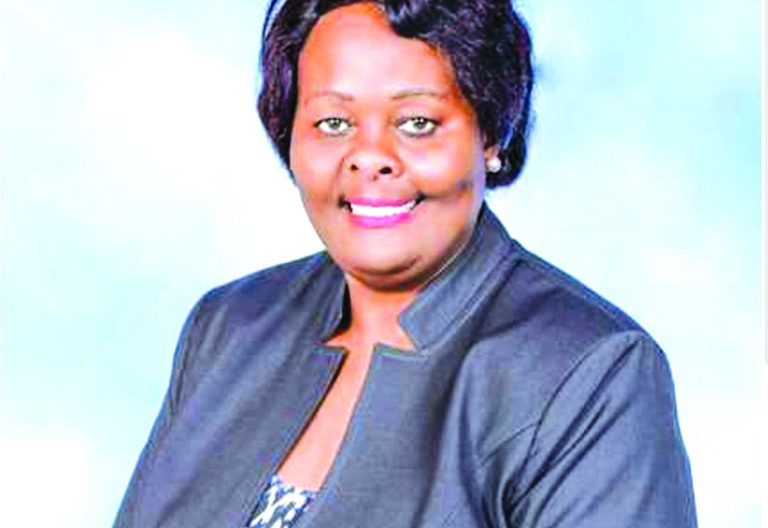Experts: Rejig CBC, don’t throw it with bath water

Most education stakeholders are now unanimous on the need for a complete review of the Competency Based Curriculum (CBC), only a day after President William Ruto promised to appoint a task force to look into its implementation.
While it was also agreed that the CBC is a good system that should be retained, most of the stakeholders say the focus should be on its implementation and structure.
They now want the task force, once formed, to build the frameworks to make implementation of CBC, which they described as a unique idea, easily viable.
Stakeholder views came as government officials remained tight-lipped on the mandate of the task force, saying they would wait for guidance on the way forward.
National Parents Association (NPA) chairman Nicholas Maiyo and the Kenya Union of Post Primary Teachers Association Secretary General, Akelo Misori, yesterday said the task force is timely.
They also cited parents’ concerns on cost implications of CBC.
The two want the Government to address issues such as the confusion over where Junior Secondary Schools (JSS) would be domiciled, the impending 100 per cent transition from Grade Six to JSS, owing to the huge number of learners; inadequate infrastructure and physical facilities; parents’ role and criterion to be used by schools in selecting JSS candidates.
Among other things, Maiyo said, the task force should establish whether there were elements that sabotaged its implementation to make it look expensive. “We need to know where CBC stands because its initial principle was to use locally available materials but it seems this has been distorted and made the curriculum very expensive,” Maiyo told the ‘People Daily’.
He, however, stated that CBC is the best model and there should be uniformity on how it is implemented for equity purposes. “We are happy the government has touched on CBC. We ask the government to involve all stakeholders so that we can get a lasting solution to education reforms,” he said.
He added: “CBC has made education very expensive. Some teachers ask children to bring materials not at the disposal of parents. For instance, in certain schools, children are being asked to bring chicken so that they can fry in order to know what a gizzard is. In such cases, it is the teachers who enjoy themselves because the children never get to taste the gizzard”.
Misori, on his party, said although there are many challenges facing CBC, the system should not be abolished per se, as that would be detrimental to the millions of learners who have already embarked on it.
He added that the government should reconsider the decision to use boarding secondary schools for junior high, citing the tender age of the transitioning learners.
Realistic manner
According to Misori, learners aged between 10 and 12 may not get along well with those in Forms One to Four under the current 8-4-4 system. “The task force should be formed immediately to address some of these areas. But most important, is the need to have all stakeholders participating in th whole process,” Misori said.
Most parents say they do not oppose CBC but it should be implemented in a realistic manner. The Alternative Provision of Basic Education and Training (APBET) National Secretary Paul Wanjohi echoed similar sentiments, saying the CBC is the best education model but the gray areas identified so far should be addressed.
Welcoming the task force, Wanjohi said that Junior Secondary School (JSS) and placement should be top of the list.
“The task force has an opportunity to come up with solutions to issues people have been grappling with. We know that the elephant in the room now is the JSS issue and should be a priority for the task force,” Wanjohi said.
He said there were suggestions that the transition of Grade Six leaners should be in their respective primary schools.
“If we continue to construct classrooms yet some of them will be left empty in primary schools, I think we are wasting resources. Instead of all these unnecessary expenditure, the learners should transit to the primary schools they are in,” he noted.
Just like schools have handled Early Childhood Education (ECD) and primary together, without any issue, Wanjohi said, a similar concept should be adopted for JSS.
He also said the assessment for Grade Six is ready and so are the learners and teachers, so there should be no interference on that aspect. “The exams have been prepared, learners are ready and teachers have been helping them prepare. There is no way now we can say we will postpone Grade Six exam, that is a big no,” he said.
Education development commentator Amos Kaburu also said the fact that President Ruto has formed a task force is proof enough that there are challenges in implementing the curriculum.
Kaburu said that education stakeholders must seize this opportunity to engage in an honest and useful debate on the future of education in the medium and long term.
Former Kenya National Union of Teachers (KNUT) Secretary General, Wilson Sossion said his interest was to see stability in the education sector, even as he supported the task force’s role.
The task force, which is presidential and not ministerial, is very timely and commendable. There should be a conversation on CBC implementation and this should go beyond the Ministry of Education.
He however stated that the only constant in this matter is that there should be no turning back to 8-4-4 system because it could cause harm to over 8 million learners already under CBC.
Former Kenya National Union of Teachers (KNUT) Secretary General, Wilson Sossion said his interest was to see stability in the education sector, even as he supported the taskforce role.
“We need revision of the curriculum review so that it can mount a curriculum that is exciting to learners, easy to be delivered by teachers, well resourced in terms of quality teaching and learning tools and a curriculum where teachers are properly recruited, supported and remunerated so that we can produce a competitive human resource,” Sossion, who spoke on K24 TV’s morning show said.
He said that he is looking forward to seeing a budget allocation to Teachers Service Commission (TSC) to hire 58,000 teachers and once this is done, Kenya will be one of the few countries that will have invested in the delivery of quality public education and offloading any indirect costs.
“We should adopt the CBC of Finland and Singapore not this fraudulent of business cartels. The current CBC is for business cartels, the book sellers, the consultants and foreigners of software for ICT… in fact we are auctioning the sovereignty of our county we would like to see it reconfigured and properly financed by the State, that would be my desire,” Sossion explained.
Ends















